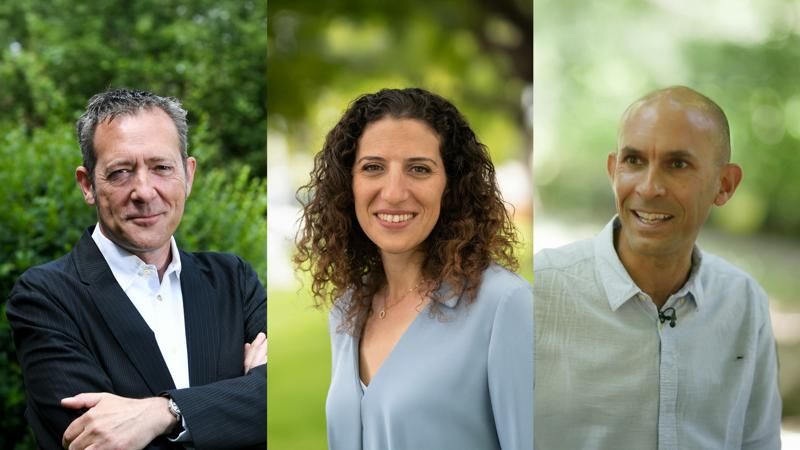
Frontiers in Science Lead Article
Published on 30 Oct 2025
Consciousness science: where are we, where are we going, and what if we get there?
- 85,030 views
- 7 citations


Frontiers in Science Lead Article
Published on 30 Oct 2025

Prof Axel Cleeremans (Université Libre de Bruxelles, Belgium), Prof Anil Seth (University of Sussex, UK), Prof Liad Mudrik (Canadian Institute for Advanced Research, Canada), and colleagues delved into next steps for advancing consciousness science.

Dr Karnig Kazazian and Prof Adrian M. Owen (Western University, Canada) — Disorders of consciousness provide an arena for abstract theories of consciousness to evolve and inform patient care, through reproducible tests and ethical frameworks.

Prof Lucina Q. Uddin (University of California, Los Angeles, USA) — Split-brain and hemispherectomy research may yield useful scientific insights into consciousness that extend beyond individuals’ subjective reports of experiences and perceptions.

Prof Thomas Metzinger (Johannes Gutenberg University, Germany) — Artificial consciousness and postbiotic minds pose profound ethical risks, underscoring the need for responsible management of scientific uncertainty and public misperceptions about which systems may be conscious.

Prof Marcello Ienca (International Neuroethics Society) and colleagues — The convergence of AI and consciousness science demands anticipatory, globally inclusive governance to promote ethical progress and address issues of neuroprivacy, bias, and equity.
Understanding consciousness is one of the most substantial challenges of 21st-century science and is urgent due to advances in artificial intelligence (AI) and other technologies.
Consciousness research is gradually transitioning from empirical identification of neural correlates of consciousness to encompass a variety of theories amenable to empirical testing.
Future breakthroughs are likely to result from the following: increasing attention to the development of testable theories; adversarial and interdisciplinary collaborations; large-scale, multi-laboratory studies (alongside continued within-lab effort); new research methods (including computational neurophenomenology, novel ways to track the content of perception, and causal interventions); and naturalistic experimental designs (potentially using technologies such as extended reality or wearable brain imaging).
Consciousness research may benefit from a stronger focus on the phenomenological, experiential aspects of conscious experiences.
“Solving consciousness”—even partially—will have profound implications across science, medicine, animal welfare, law, and technology development, reshaping how we see ourselves and our relationships to both AI and the natural world.
A key development would be a test for consciousness, allowing a determination or informed judgment about which systems/organisms—such as infants, patients, fetuses, animals, organoids, xenobots, and AI—are conscious.

A summary of the lead article in a Q&A format, with a figure and video.

A version of the lead article written for—and peer reviewed by—kids aged 8-15 years.

As AI—and the ethical debate surrounding it—accelerates, scientists argue that understanding consciousness is now more urgent than ever. (Photos: Prof Axel Cleeremans of Université Libre de Bruxelles, Belgium, Prof Liad Mudrik of Canadian Institute for Advanced Research, Canada, and Prof Anil Seth of University of Sussex, UK).

Accelerating progress in artificial intelligence and neurotechnology is moving faster than our understanding of consciousness, raising serious ethical challenges.

As AI - and the ethical debate surrounding it - accelerates, scientists argue that understanding consciousness is now more urgent than ever.

Due to the incredibly fast pace of AI advancement, scientists warn that time is running out to answer a fundamental question: what truly defines consciousness?

Three leading consciousness researchers in the world call for accelerating the study of human consciousness given the pace of progress in artificial intelligence.

Will brain science deliver answers about consciousness or hit another wall?

What makes a mind aware? Could a machine ever feel something real, or could awareness emerge in places no one expects?
Follow the science, follow Frontiers in Science